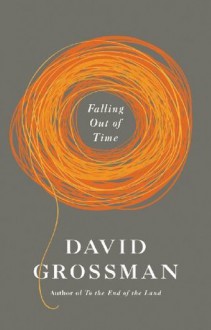In Falling Out of Time, David Grossman has created a genre-defying drama--part play, part prose, pure poetry--to tell the story of bereaved parents setting out to reach their lost children. It begins in a small village, in a kitchen, where a man announces to his wife that he is leaving, embarking...
show more
In Falling Out of Time, David Grossman has created a genre-defying drama--part play, part prose, pure poetry--to tell the story of bereaved parents setting out to reach their lost children. It begins in a small village, in a kitchen, where a man announces to his wife that he is leaving, embarking on a journey in search of their dead son.The man-called simply the "Walking Man" --paces in ever-widening circles around the town. One after another, all manner of townsfolk fall into step with him (the Net Mender, the Midwife, the Elderly Maths Teacher, even the Duke), each enduring his or her own loss. The walkers raise questions of grief and bereavement: Can death be overcome by an intensity of speech or memory? Is it possible, even for a fleeting moment, to call to the dead and free them from their death? Grossman's answer to such questions is a hymn to these characters, who ultimately find solace and hope in their communal act of breaching death's hermetic separateness. For the reader, the solace is in their clamorous vitality, and in the gift of Grossman's storytelling - a realm where loss is not merely an absence, but a life force of its own.
show less

